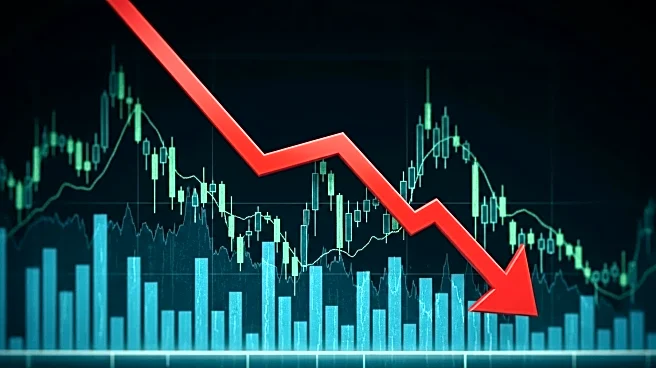What's Happening?
The U.S. stock market experienced a significant downturn, marking its worst one-day performance since April. This decline was triggered by President Trump's renewed threat to impose additional tariffs on Chinese imports. The S&P 500 fell by 2.7 percent, and the Nasdaq Composite also saw a substantial drop. The tariffs are a response to China's recent restrictions on the export of rare earth materials, which are crucial for various industries, including artificial intelligence chip production. President Trump announced the potential tariff increase on his social media platform, Truth Social, indicating that other countermeasures are also being considered.
Why It's Important?
The potential increase in tariffs on Chinese imports could have widespread implications for U.S. industries reliant on rare earth materials, such as technology and manufacturing. The stock market's reaction underscores investor concerns about the escalating trade tensions between the U.S. and China. These tariffs could lead to increased costs for American companies, potentially affecting consumer prices and economic growth. The situation highlights the fragile nature of international trade relations and their impact on the U.S. economy.
What's Next?
If President Trump proceeds with the tariff increase, it could lead to further volatility in the stock market and strain U.S.-China trade relations. Businesses and investors will be closely monitoring any official announcements or policy changes. The U.S. government may also explore alternative sources for rare earth materials to mitigate dependency on Chinese exports. Stakeholders in affected industries are likely to lobby for measures to protect their interests.
Beyond the Headlines
The trade tensions could prompt a reevaluation of global supply chains, encouraging U.S. companies to diversify their sources of critical materials. This situation may also influence future trade negotiations and policies, as the U.S. seeks to balance economic interests with geopolitical strategies.










